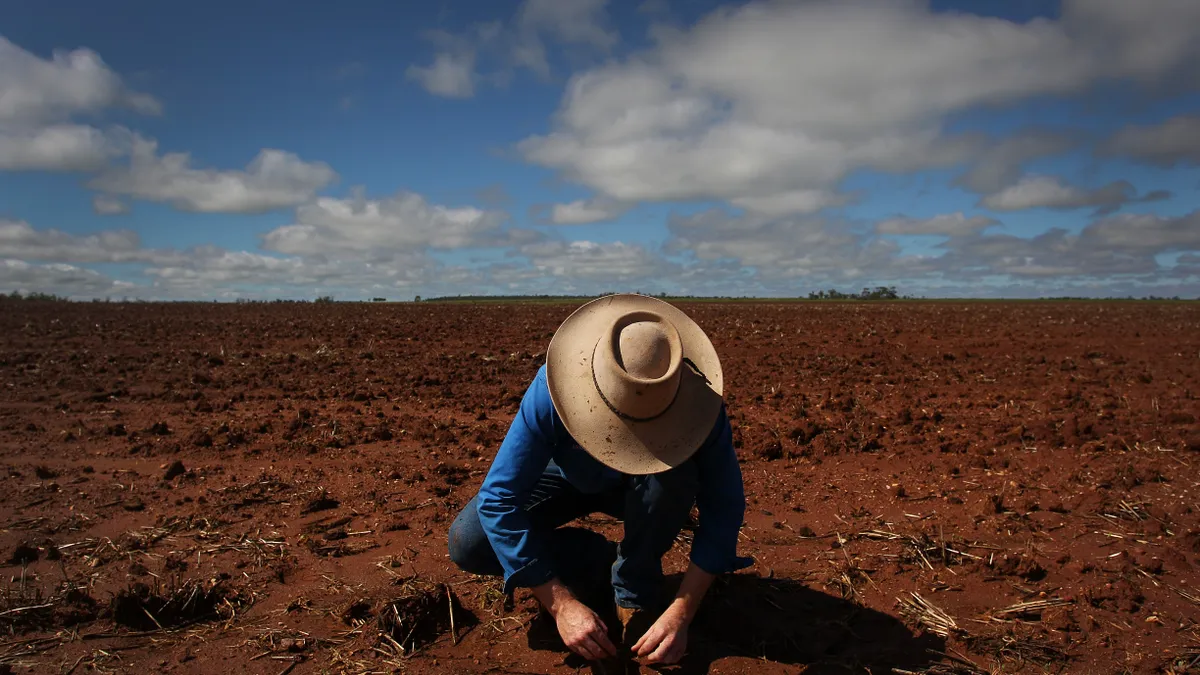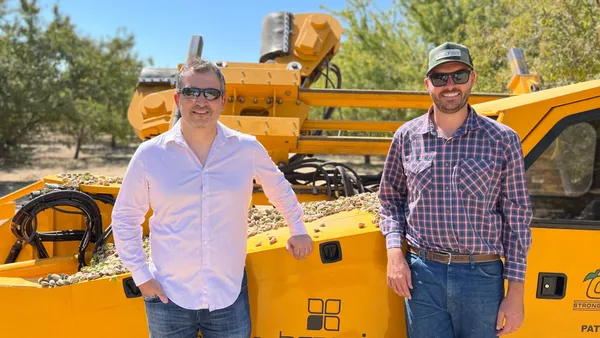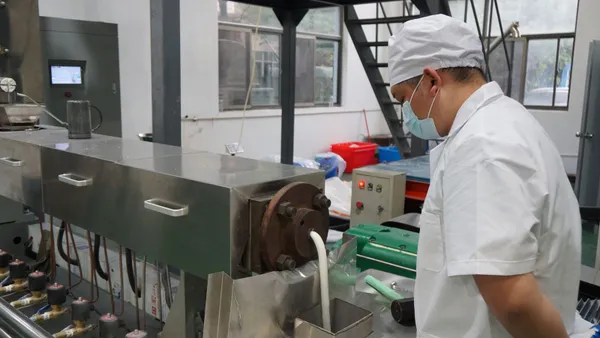Dive Brief:
- Climate-smart farming practices are among the most effective pathways for small producers to diversify their revenue streams and compete against major food companies, U.S. Department of Agriculture Secretary Tom Vilsack said Wednesday.
- Large production agriculture will require small farmers to adopt a "different model" to compete, which Vilsack said should be climate focused. “Climate-smart agriculture can give you a value-added proposition that can increase farm income,” he said at the Farm Progress Show in Decatur, Illinois.
- Vilsack’s comments came after the USDA announced recipients of $266 million in loans and grants under the Rural Energy for America Program. Funding will help agriculture producers and rural small businesses invest in renewable energy or energy efficiency improvements.
Dive Insight:
As consolidation forces the industry to adopt a “get big or get out” mentality, Vilsack said new grants and programs offer smaller farmers an alternative.
“Farmers are gonna get paid to adopt climate smart agriculture programs with these partnerships," Vilsack said. “And new markets are going to be created.”

The USDA’s Partnerships for Climate-Smart Commodities, announced early last year, is investing $3.1 billion to finance 141 projects that will help producers grow and market climate-smart commodities.
The program supports farmers in the transition to greener practices and funds projects looking to track the amount of emissions saved. The initiative is expected to reach 60,000 farmers and 25 million acres of land and will create hundreds of expanded markets.
Other opportunities for new revenue streams or cost savings include grants to produce sustainable aviation fuel or improve fertilizer application. The USDA also created 12 regional food business centers to link small farmers to wholesalers and distributors.
The USDA is touting efforts to forward the Biden administration’s goals around climate and addressing corporate consolidation in the food industry. Vilsack said that the new programs are essential to help small farm operations and rural communities thrive.
“Instead of having one way to make money, small and mid-size producers can be climate-smart agriculture producers to get a value-added opportunity,” said Vilsack. “It has never been a better time to be in agriculture.”
Disclosure: Farm Progress and Agriculture Dive are both owned by Informa. Farm Progress has no influence over Agriculture Dive’s coverage.











